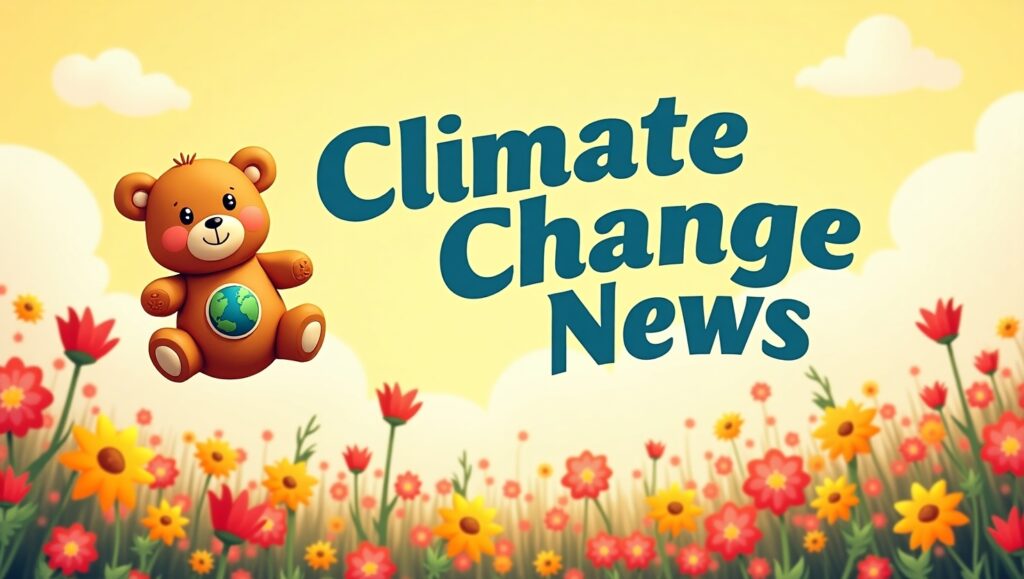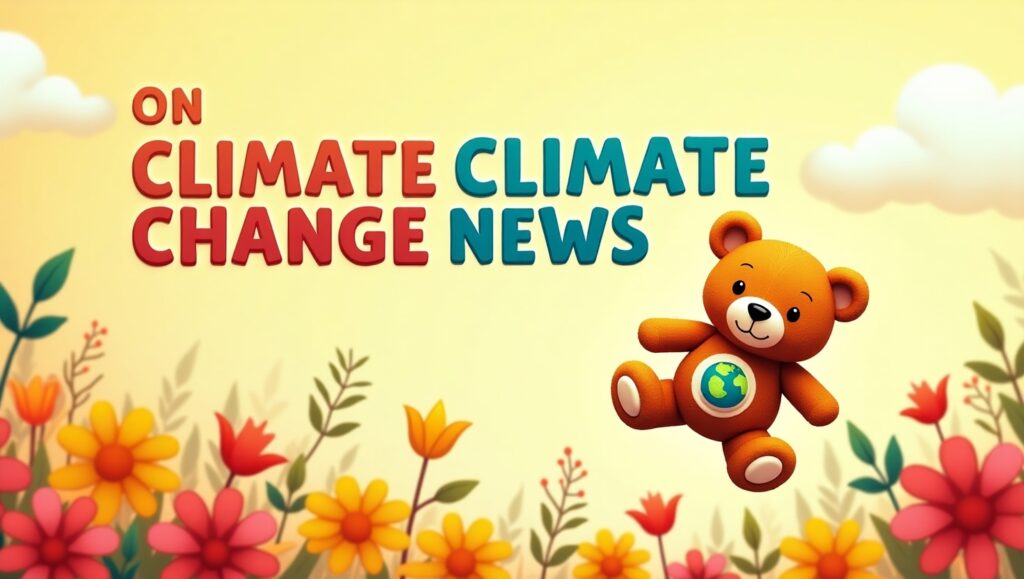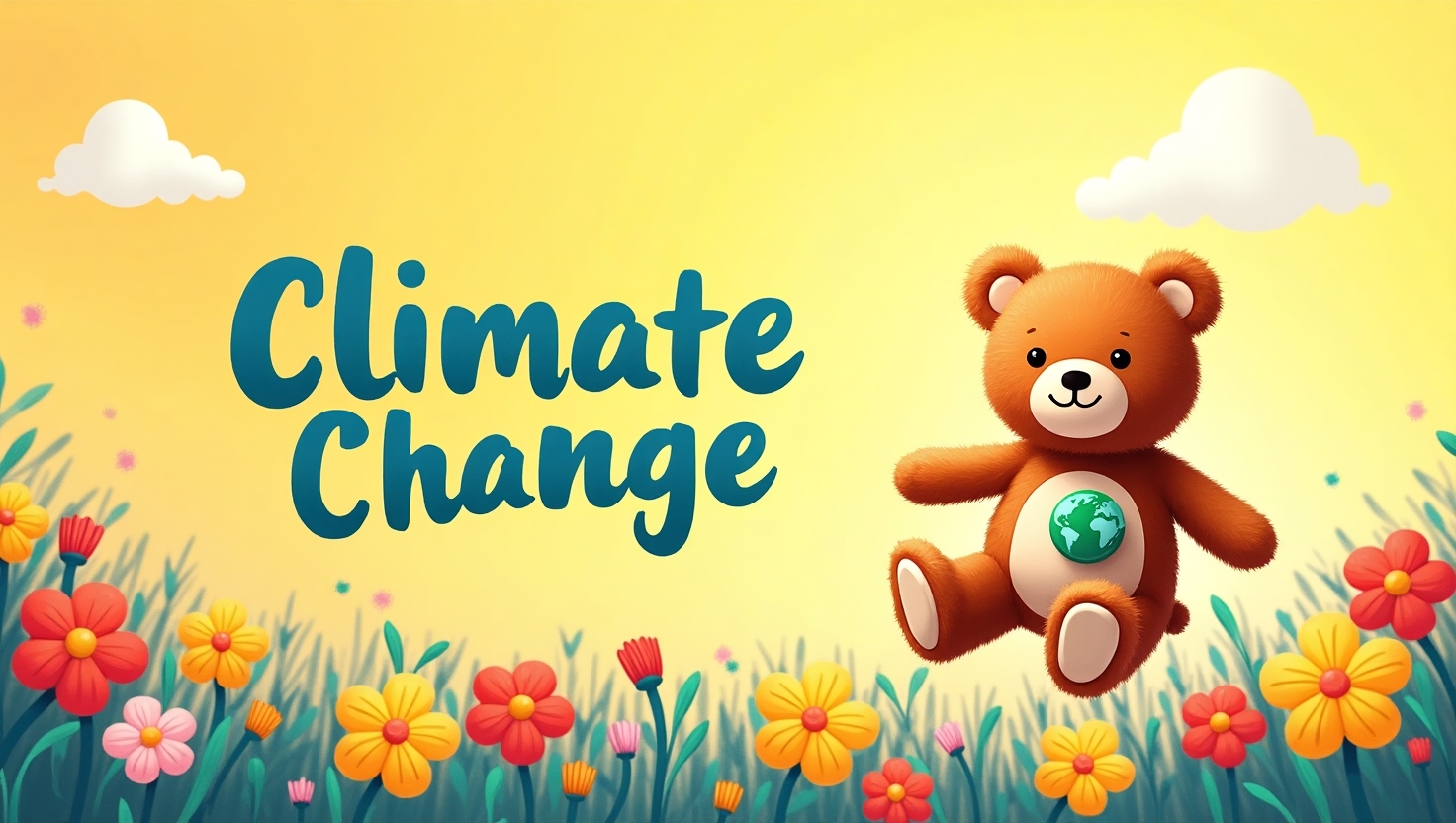Climate change is no longer a future threat—it is today’s harsh reality. As of mid-2025, the impact of global warming is being felt across continents with rising temperatures, extreme weather events, melting glaciers, and shifts in biodiversity. This year has already seen some of the most pressing climate change developments that are reshaping how governments, scientists, and citizens respond to this global crisis.

2025 Set to Be the Hottest Year Ever Recorded
According to a new assessment from the World Meteorological Organization (WMO), the year 2025 is on track to become the warmest year in recorded human history. The global average temperature has now climbed by 1.56°C beyond pre-industrial levels, creeping perilously near to the 1.5°C limit set by the Paris Agreement. South Asia, the Middle East, Southern Europe, and parts of Africa are experiencing record-breaking heatwaves. In June alone, cities like Delhi, Baghdad, and Cairo crossed 50°C (122°F), leading to widespread health warnings, power shortages, and even fatalities.- Melting Glaciers and Rising Sea Levels Threaten Coastal Cities
Recent satellite data from NASA reveals increased melting in the polar ice caps and glaciers across Greenland and Antarctica. These melting patterns are leading to faster-than-expected sea level rise, currently averaging 4.8 mm per year—a considerable leap compared to earlier decades. Cities like Karachi, Jakarta, Miami, and Venice are under rising threat. Several coastal communities in Bangladesh and the Maldives have already started relocation processes due to rising tides and saltwater intrusion, impacting both agriculture and drinking water supplies. - Extreme Weather Events Become the New Normal 2025 has witnessed a record number of extreme weather occurrences tied directly to climate change: Wildfires in California and Australia have charred hundreds of acres, damaging houses and wildlife habitats. Unprecedented floods in Germany and China uprooted tens of thousands of people and cost billions in damages. Drought conditions in East Africa have led to water shortages and severe agricultural losses, increasing food insecurity in the region. Scientists highlight that these catastrophes are not isolated—they are part of a growing pattern fueled by global warming and disruptive weather patterns like El Niño.
Global Climate Agreements Under Pressure
While the Paris Agreement still serves as a global framework, many experts argue that stronger, legally binding measures are now needed. At the latest UN Climate Summit in Nairobi (June 2025), climate activists and vulnerable nations demanded more accountability from major polluters, particularly the U.S., China, India, and Russia. Some progress has been made: The European Union vowed net-zero emissions by 2040, bumping forward its previous aim. China has agreed to phase out all new coal plant approvals by the end of 2025. The United States passed a $1.2 trillion green infrastructure plan centred on renewable energy, electric transportation, and carbon capture technology. However, activists say such pledges are not adequate without public implementation and enforcement.- Climate Change and Public Health: A Growing Concern
Heat-related illnesses are on the rise globally. Hospitals in nations like India, Pakistan, and Egypt are reporting rising occurrences of heatstroke, dehydration, and respiratory difficulties connected to pollution and high temperatures. Vector-borne diseases such as malaria and dengue are spreading into new areas due to changing rainfall patterns and warmer climates. The World Health Organization has declared climate change a “health emergency multiplier,” warning governments to invest in climate-resilient healthcare systems. - Youth and Grassroots Movements Demand Change
Young activists across the globe are continuing to challenge governments for more climate action. Movements like Fridays for Future, Climate Strike Pakistan, and Youth for Earth Africa are gathering pace in 2025. Social media platforms like TikTok, Instagram, and Threads are becoming key instruments for awareness campaigns, live reporting on adverse weather, and global coordination of protests. These grassroots efforts are not just symbolic—they’re influencing policies, elections, and even corporate behavior.

Climate Innovation: Tech and Business Respond
Despite the grim statistics, there is hope through innovation. In 2025, climate tech businesses have seen record investments, especially in: Carbon capture and storage (CCS) technologies Green hydrogen fuel Vertical farming and sustainable agriculture AI-powered climate modeling and disaster prediction Companies like Tesla, Microsoft, and other Asian conglomerates are now vowing carbon-negative operations by 2035. The surge of eco-conscious consumers is also forcing firms to adopt sustainable practices, from plastic-free packaging to ethical supply chains.
What You Can Do: Small Actions, Big Impact
Climate change may be a global crisis, but every individual’s actions matter. Here’s how you can contribute: Reduce single-use plastics Support clean energy providers Eat more plant-based meals Conserve water and electricity Educate others and keep informed Governments and corporations have their roles to play, but public knowledge and behavioral change are equally crucial in the fight against climate change.

Conclusion
- : A Defining Moment in Human History
Climate change is no longer a distant warning—it is an ongoing emergency that touches every aspect of our lives. From record heatwaves to rising seas and shifting weather patterns, 2025 is a wake-up call for humanity. While innovation and policy change offer hope, the window to act is rapidly closing. What we choose to do today—individually, nationally, and globally—will define the future of our world. climate change news 2025, global warming update, hottest year 2025, sea level rise, extreme weather events, climate policy, UN climate conference 2025, climate health problem, climate innovation, how to fight climate change



